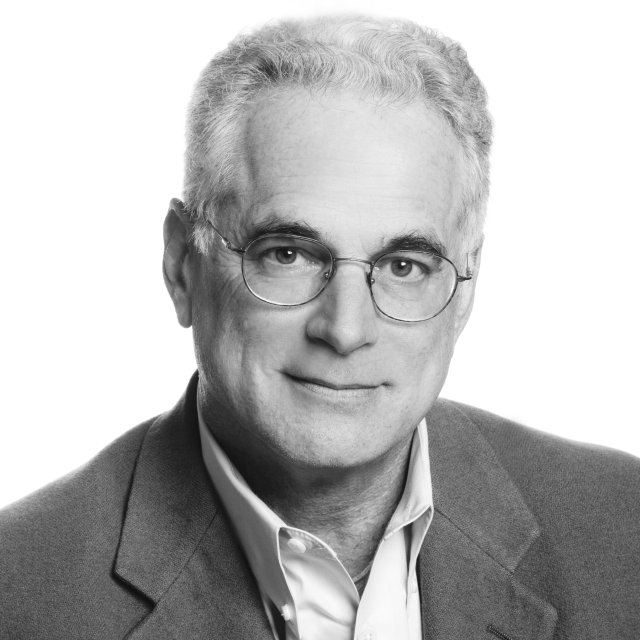How to Shift From Full-time Work to a Part-Time Second Career

If you’re a boomer you may remember small “hippie” shops selling fringe jackets. Maybe you still have one of them stored in a closet. If so, your Age of Aquarius memento might have been created by Lincoln Wolfe, now 60.
In recent years, Wolfe has made the transition from full-time (high stress) manager in the craft leather business to part-time (low stress) consultant to the industry. His job duties now range from training young workers to planning factory layouts.
“I didn’t want to work full-time for anyone,” he says. “I enjoy what I am doing at a more relaxed pace. This is retirement.”
Downshifting In the Field You Love
Transitioning from a 40-hour-plus workweek to a part-time schedule in retirement that’s less of a grind, but still in the field you’ve grown to love, may be your idea of retirement, too.
Here’s how Wolfe and professional singer Fay Putnam told me they did it and what you can learn from their experiences.
Wolfe decided he was done with school at age 16 and headed for Florida where he started a business with a 24-year-old, making sand-cast castles on the beach and selling them to various outlets. A customer in New Jersey hired him about a year later, launching his career in the leather craft trade.
Wolfe worked his way up in the industry, sometimes running his own venture and other times for an employer. In the early 1990s, Coach (the high-quality leather goods designer and manufacturer) hired him to oversee the technical development of new products — moving leather goods from the designer shop into mass production.
Coach grew dramatically and the job became increasingly intense, especially when production moved offshore to India and China. But since Coach went public in 2000 and Wolfe’s shares had appreciated some 13 times by 2005, he then had enough money to retire on.
Growing a Consulting Business
When he began consulting from his home in Lambertville, N.J., Wolfe’s initial contracts were, as you might expect, from Coach. His business then expanded through referrals. These days, Wolfe works about a third of the time, usually on the road.
His “unretirement” timing was fortuitous with the revival of the American leather goods industry—mostly designer products catering to urban hipsters. In 2012, Wolfe began consulting with Shinola, the Detroit-based Made-In-America producer of handcrafted watches, leather goods and bikes.
When we talked in late July, Wolfe was in Dearborn, Mich. writing an industrial sewing curriculum for the Makers Coalition, a trade group formed to apprentice a younger workforce into artisan leather manufacturing. The program will be housed at Henry Ford Community College's Michigan Technical Education Center.
Singing a New Song
Leather craft is an art. So is singing. Fay Putnam spent her career as a professional singer, putting long hours into her craft, mostly with choirs such as the Gregg Smith Singers and the San Francisco Symphony choir. Putnam also had a side business as a voice coach.
She moved around fairly frequently because her husband, Frank, was a U.S. Navy aviator. Now 68, Putnam has started a part-time business in Portland, Ore. as a voice and speech coach.
“I love doing it,” she says. I wouldn’t keep doing this if I didn’t love it.” Although, she concedes, she’d welcome a few more clients.
Putnam and her husband moved to a condo in downtown Portland from the San Francisco Bay Area two years ago. Their son and daughter-in-law live there; so does her husband’s brother. And their money now goes farther. Most of all, Putnam says, they were tired of the San Francisco metro area’s horrendous traffic jams.
Frank is now retired, but Fay wanted to stay engaged in her art and teach the voice and breath control techniques she learned over the years. Most of her business is helping entrepreneurs and employees polish their public-speaking presentations. She coaches some singers, too.
Takeaways From Wolfe and Putnam
Wolfe’s and Putnam’s stories highlight a number of critical aspects that others in their 50s and 60s should take into account as they mull their next chapters.
Both built their new ventures on their existing knowledge and skills, rather than shifting to unfamiliar fields. For most boomers, I don’t believe there is any reason to succumb to the lure of reinvention—the urge to embrace a radical makeover—especially if the goal is finding part-time work that offers a financial and psychic reward.
And yet, much of the late-in-life transition narrative we often hear extols the new, the different, the dramatic change.
You know the story. Someone has labored long in a cubicle, or spent hours as a road warrior, for corporate America. Now, in the last third of life, she finds her passion, somehow manages to open a winery, basks in its growing sales and gets invited to speak about reinventing yourself at global conferences.
Okay, I’m exaggerating slightly. But I wholeheartedly agree with the cautionary wisdom of Marc Freedman, founder of Encore.org, in a recent Harvard Business Review column.
He wrote: “After years studying social innovators in the second half of life — individuals who have done their greatest work after 50 — I’m convinced the most powerful pattern that emerges from their stories can be described as reintegration, not reinvention. These successful late-blooming entrepreneurs weave together accumulated knowledge with creativity, while balancing continuity with change, in crafting a new idea that’s almost always deeply rooted in earlier chapters and activities.”
What I applaud about Wolfe and Putnam is that they smartly exploited what they already knew. It’s an insight echoed in a 2010 paper by professor Barry Bluestone of Northeastern University and Mark Melnick of the Boston Redevelopment Authority. When investigating jobs that might be available for aging workers, the authors felt boomers should exploit their skills — albeit, sometimes in a different setting or even industry.
“In many cases, older workers could carry their existing skills and credentials into a new setting,” they wrote. “For example, a registered nurse might move from a major hospital to a community clinic; a computer systems analyst at a private software company might take a job in local government; a civil engineer at a private construction firm might work on a state government highway project.”
Training for the Transition
Of course, you still may have to pick up additional training or education to ease the transition.
Putnam spent her career on the creative side, so she realized she needed to know more about the practical aspects of running a small business. “Most of the time, in the training that artists get, business savvy isn’t included,” she laughs.
To wise up, Putnam took a month-long business basics class called “Better, Smarter, Richer” at Portland Community College. It was designed specifically for solopreneurs and creative entrepreneurs like herself.
The course taught Putnam how to build her website and market her services to local business groups. Best of all, she says, her classmates continue to get together, share information and cheerlead for one another.
Flexibility Is a Must
Like Wolfe and Putnam, many boomers want to continue earning an income during retirement, but put in fewer hours. Their desire for the “big job” and to climb the ladder of the “big career” lies in their past. Phyllis Moen, sociologist at the University of Minnesota, says what many boomers desire are: “not so big jobs.”
Wolfe and Putnam found it much easier to create their flexible work schedules by tapping into their backgrounds rather than attempting ambitious life overhauls. “Older workers value flexibility,” says Richard Johnson of the Urban Institute. “They don’t want to work 9 to 5, five days a week.”
Wolfe’s story reinforces the benefits of flexibility in a different way that will strike a chord with many in their 50s and 60s. He has dialed back on his consulting services recently after being diagnosed with cancer. His prostate cancer has been successfully treated, but Wolfe must now spend more time paying attention to his health, watching his diet, exercising, meditating and so on.
He still enjoys consulting, but his priorities have changed. Cancer has that effect. “I think that I would try to be more engaged than I am now if it wasn’t for the stress of travel,” he says.
Thing is, assuming their health holds up, both Wolfe and Putnam have achieved something all of us desire: Control over their destiny. They can curtail working if they want to. They can stay engaged, if the work remains interesting. It’s their choice.
Not bad for a next chapter.
Chris Farrell is senior economics contributor for American Public Media’s Marketplace and author of the forthcoming Unretirement: How Baby Boomers Are Changing the Way We Think About Work, Community, and The Good Life. He writes about Unretirement twice a month, focusing on the personal finance and entrepreneurial start-up implications and the lessons people learn as they search for meaning and income. Tell him about your experiences so he can address your questions in future columns. Send your queries to him at cfarrell@mpr.org. His twitter address is @cfarrellecon.
Related Links:
